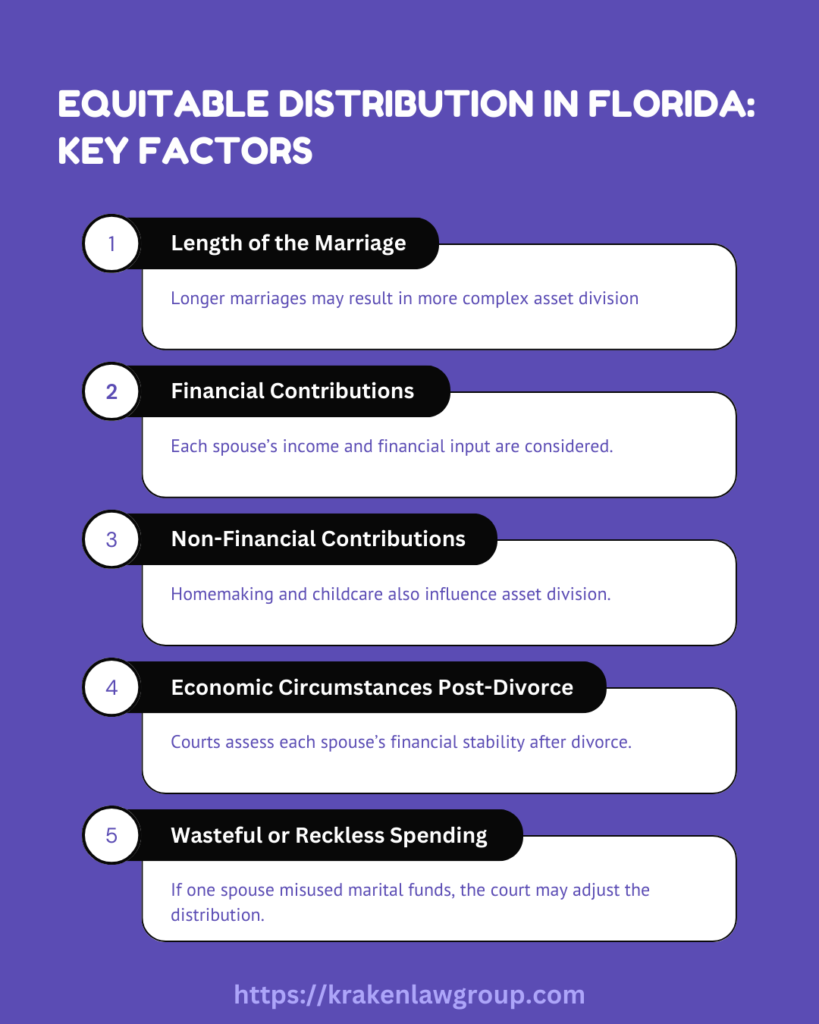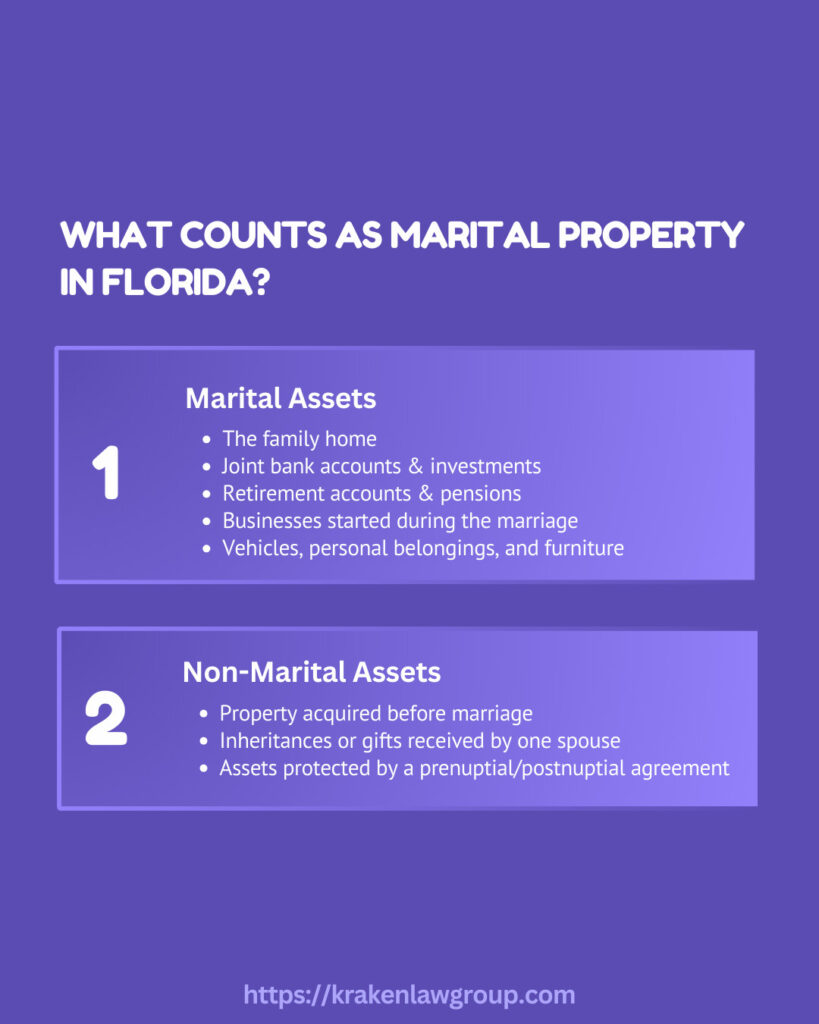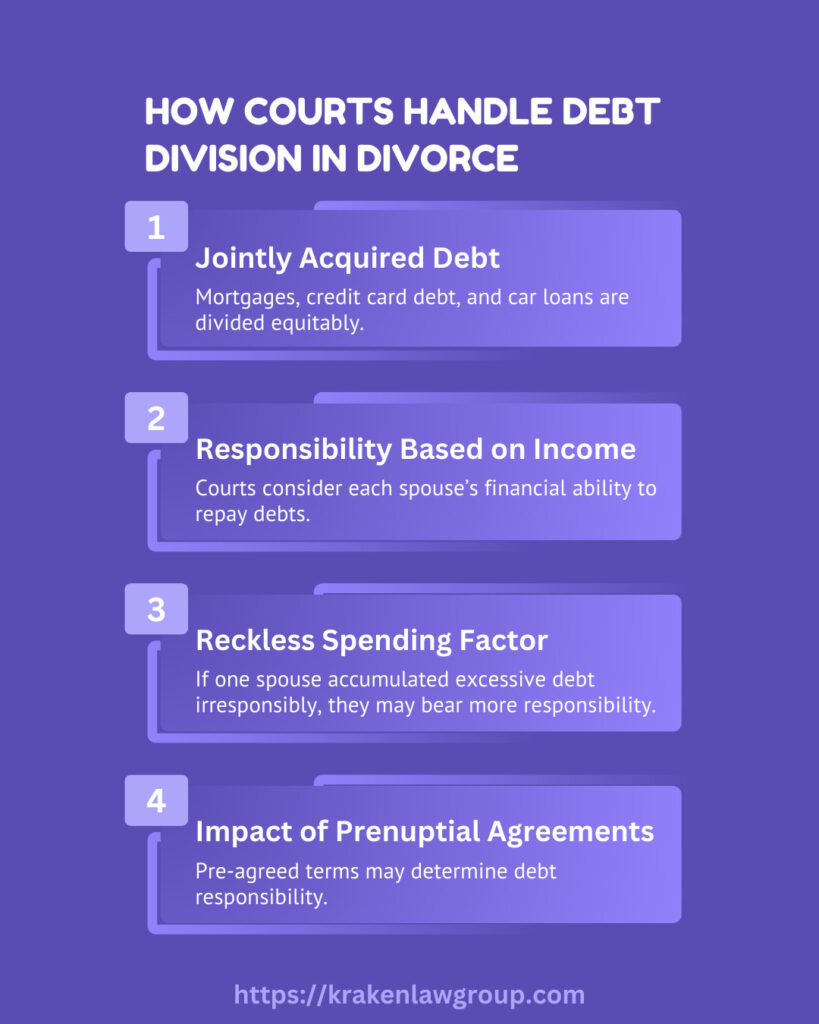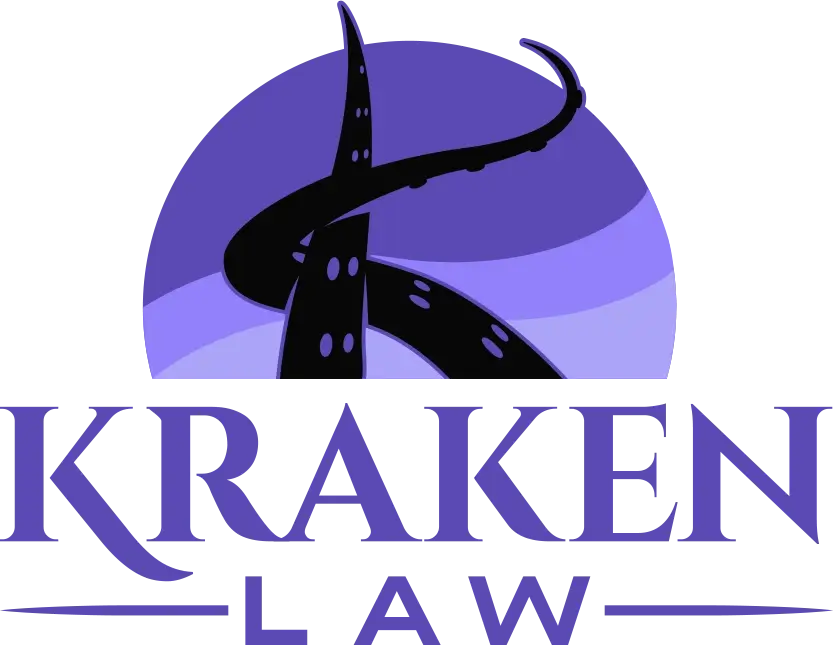Written by The Kraken Law Group Team | When the Law Gets Tough, We Get Kraken.
Divorce is a deeply personal and often emotional process, especially when it comes to dividing marital assets. Financial security, sentimental attachments, and future stability all come into play, making asset division one of the most challenging aspects of a divorce. If you are navigating a divorce in Florida, particularly in the Orlando area, understanding how the law applies to asset division can help you make informed decisions and protect your financial future. While this guide is focused on Florida law, much of this information is applicable to divorce cases across the United States.
Understanding Equitable Distribution in Florida
Florida follows the principle of equitable distribution, which means that marital assets and debts are divided fairly—not necessarily equally—between spouses. The court considers several factors to determine a fair division, including:
- The length of the marriage
- Each spouse’s financial contribution to the marriage
- Non-financial contributions, such as raising children or homemaking
- The economic circumstances of each spouse post-divorce
- Any wasteful or reckless spending of marital funds
Equitable distribution doesn’t always mean a 50/50 split. The goal is fairness, which can look different in each case.

What Counts as Marital Property?
Marital property includes assets and debts acquired during the marriage, regardless of who earned or purchased them. Some common examples include:
- The family home
- Bank accounts and investments
- Retirement accounts and pensions
- Businesses started during the marriage
- Vehicles, furniture, and personal belongings
- Debts accumulated jointly
Conversely, non-marital property (or separate property) generally includes assets acquired before marriage, inheritances, gifts to one spouse, and assets protected by a prenuptial agreement.

The Family Home: Who Gets to Keep It?
For many couples, the family home is their most valuable asset—and often the most emotionally charged. When determining what happens to the home, options include:
- One spouse buying out the other’s share
- Selling the home and dividing the proceeds
- Co-owning temporarily, particularly if children are involved
Courts aim to ensure that children, if applicable, experience minimal disruption, which may influence who stays in the home.
Dividing Retirement Accounts and Investments
Retirement accounts and pensions are often significant assets in a marriage. Under Florida law, any contributions made to these accounts during the marriage are considered marital property. These assets can be split through a Qualified Domestic Relations Order (QDRO), which allows a portion of one spouse’s retirement benefits to be transferred to the other without penalties.
Handling Business Assets in Divorce
If you or your spouse own a business, its valuation and division can be complex. The court will assess:
- Whether the business is marital or separate property
- The value of the business
- Each spouse’s role in running the business
Options for division include selling the business, co-ownership post-divorce, or one spouse buying out the other.
Debts: Who is Responsible?
Just as assets are divided, so too are debts. Joint credit card debt, mortgages, car loans, and other financial obligations incurred during the marriage will be allocated between both spouses based on factors such as income and financial need. Courts also look at whether one spouse accumulated debt irresponsibly, such as through gambling or reckless spending.

The Role of Prenuptial and Postnuptial Agreements
If you and your spouse signed a prenuptial or postnuptial agreement, asset division may follow the terms outlined in that contract. These agreements can simplify the division process and offer clarity in what can otherwise be a contentious dispute.
Navigating Property Division Without a Court Battle
While some divorcing couples rely on the courts to divide their assets, many reach agreements through mediation or collaborative divorce. These approaches allow couples to work together with legal professionals to negotiate terms that suit both parties, often reducing costs, stress, and time spent in court.
Why Legal Guidance is Essential
Dividing assets in a divorce is rarely straightforward, and mistakes can have long-term financial consequences. An experienced family law attorney in Winter Park, FL can help protect your rights and ensure a fair outcome. Whether you need help negotiating a settlement, understanding asset valuation, or representing your interests in court, having knowledgeable legal support can make a significant difference.
Let Kraken Law Group Help You Secure Your Financial Future
At Kraken Law Group, we understand that divorce is more than just a legal process—it’s a major life transition. Our compassionate and experienced family law attorneys in Winter Park are here to guide you through asset division with confidence and clarity.
While divorce laws vary by state, many of the principles of equitable distribution apply nationwide. If you have questions about your specific situation, we’re here to help. Contact Kraken Law Group today for a confidential consultation, and let’s work together to protect your financial future.
Kraken Law Group
📍 Visit Us: 1420 Gene St, Winter Park, FL
📞 Call Us: 407-900-9055
📧 Email Us: [email protected]
About Our Kraken Law Group Team
The Kraken Law Group Team is composed of experienced attorneys and legal professionals specializing in personal injury, immigration, family law, and real estate law. We are committed to providing accurate, insightful, and up-to-date legal information to help individuals and businesses make informed decisions.
Every article published on our blog is carefully reviewed by our legal team to ensure accuracy and compliance with the latest legal developments. Our goal is to empower readers with trustworthy legal knowledge while offering expert guidance tailored to their needs.


